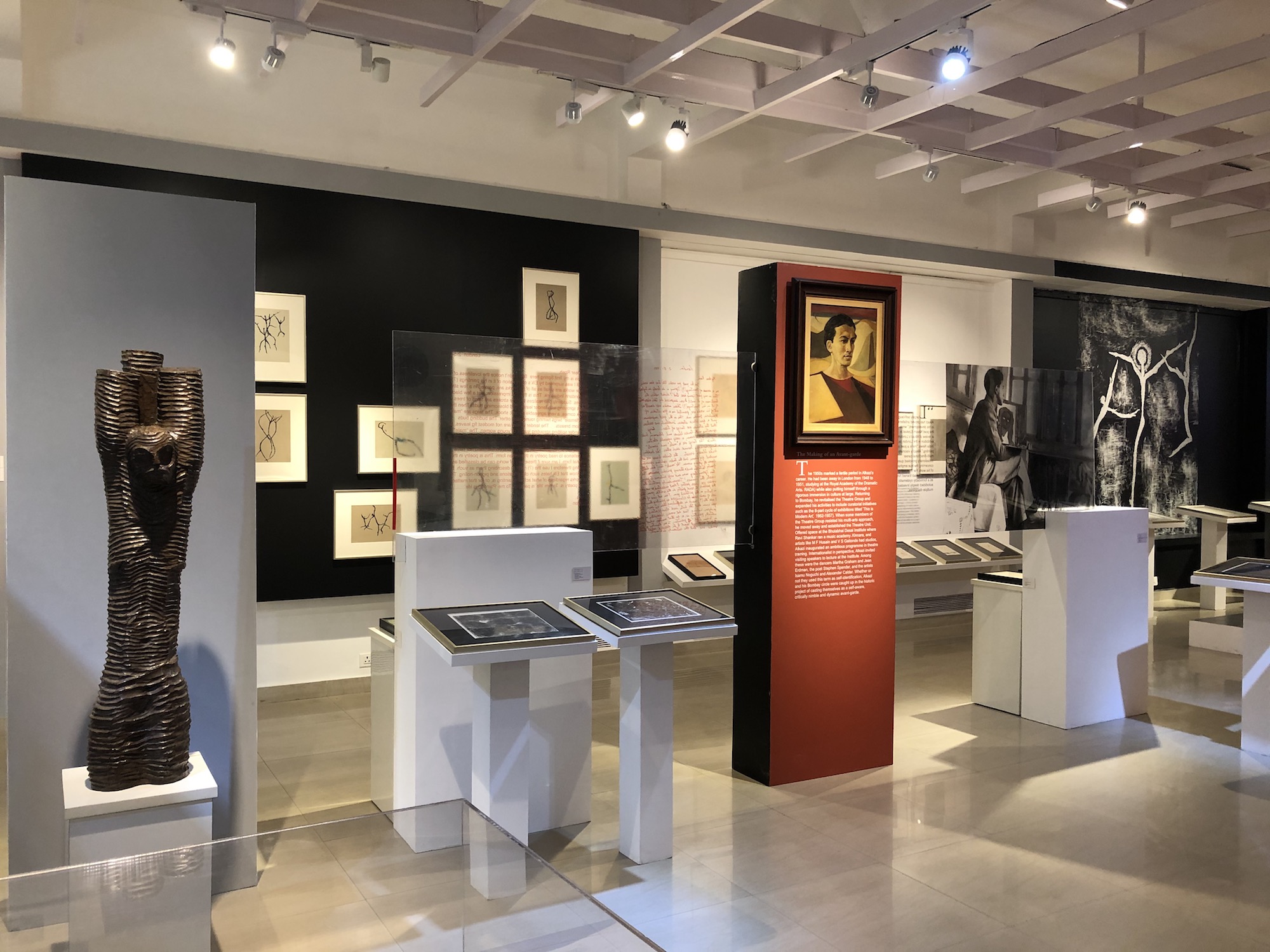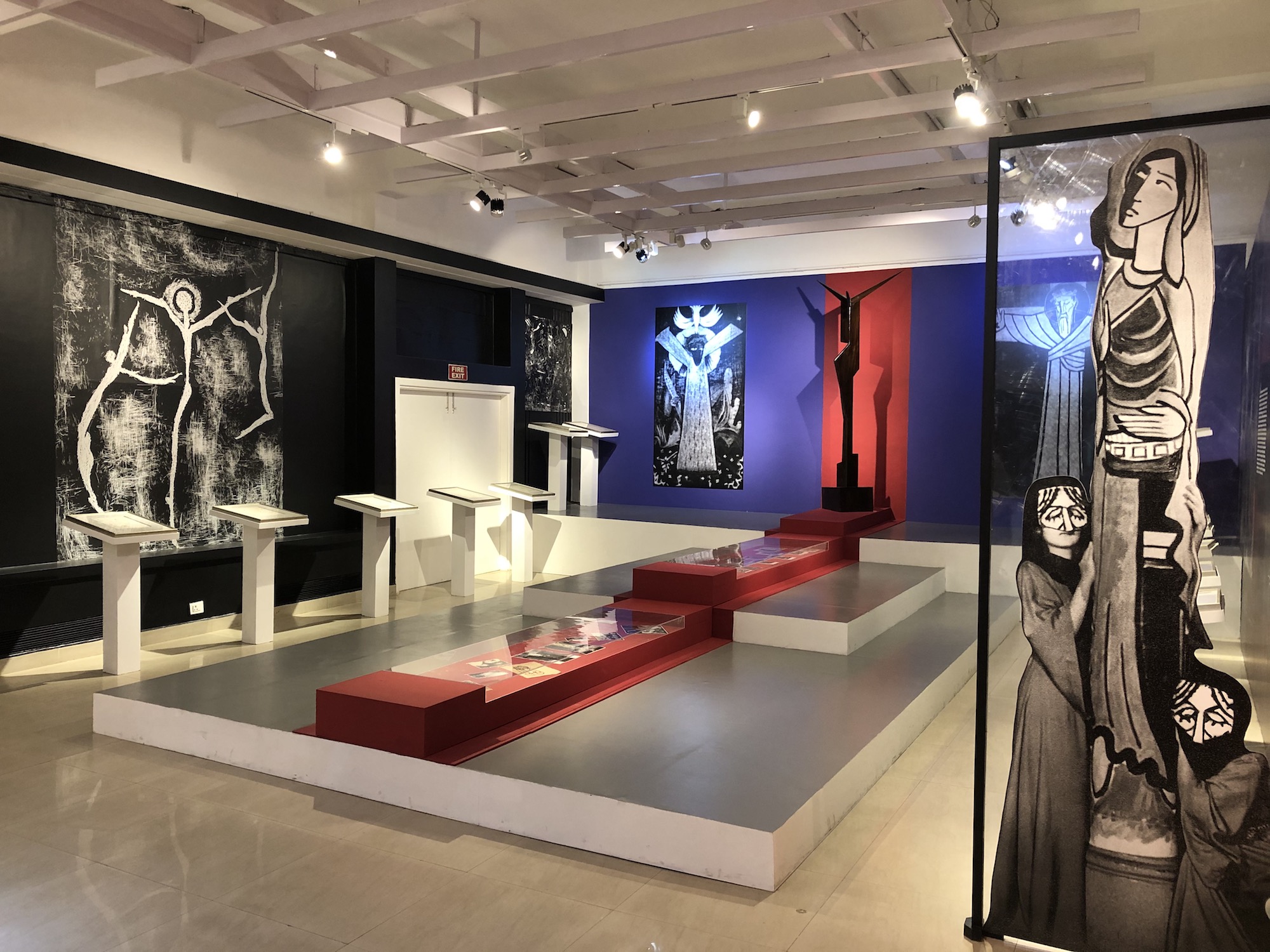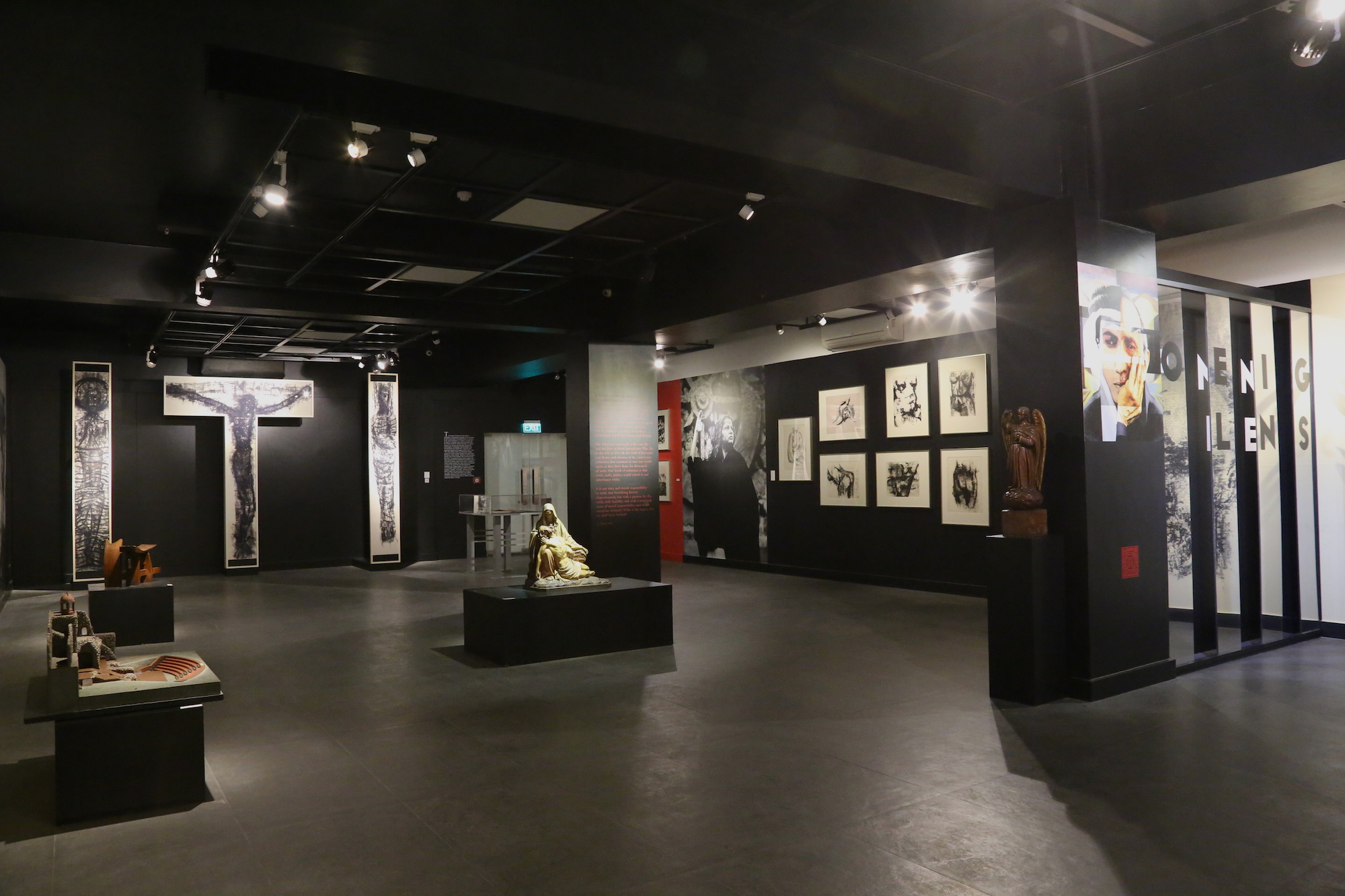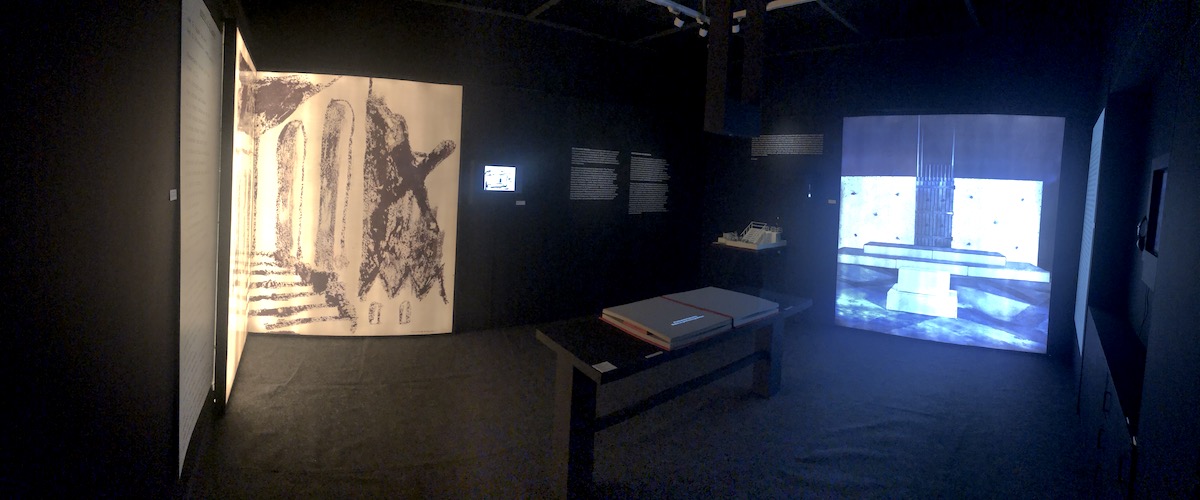PAST EXHIBITION
Opening Lines – The Artworks of E Alkazi
Art Heritage presents Opening Lines, a historic research exhibition devoted to Ebrahim Alkazi as an artist in his own right. In celebration of Alkazi’s 94th birthday, it presents a considerable body of his paintings and drawings in several media, which have never been on public view since they were originally shown in the early 1950s and the mid-1960s. So towering is Alkazi’s reputation as a legendary theatre-maker and institution-builder, theatre pedagogue, champion of artists, organizer of exhibitions, and mentor to generations of actors on stage and screen, that the memory of his own art-making has been largely forgotten.
Curated by Bombay-based poet and cultural theorist Ranjit Hoskote, Opening Lines brings back to light most of the works that went into Alkazi’s exhibitions at the Asian Institute, London (1950), the Jehangir Art Gallery, Bombay (1952), and at the Shridharani Gallery, New Delhi (1965). In each exhibition, he demonstrated a versatile command over a variety of media and techniques, ranging from watercolour, charcoal, ink, poster paint and carbon tracing to the sketch pen, marker and frottage.
Alkazi’s works from the early 1950s find their historical context in a widespread post-World War II artistic fascination with Primitivism – his references embrace Neolithic drawings, African masks and Oceanic sculpture, as well as the key myths of the hunt, the sacrifice, and sexual communion. His works from the early 1960s possess a gravitas, as though they had been crafted from shades of night, whether landscapes, seascapes, heads, torsos, or still life arrangements. The auratic figure of Christ presides over both phases of activity, as a mythic presence articulating the anguish of the crucifixion and the hope of the resurrection.
Opening Lines also rebuilds, layer by layer and through the use of archival and documentary materials from the Alkazi Theatre and Art Archives, the geographical, cultural and aesthetic contexts of Alkazi’s extraordinarily productive life and influential work during these early decades, when he was still only in his 20s and 30s – decades during which he was already active as a seminal and indefatigable shaper of culture across disciplines, at once elegantly cosmopolitan and robustly anchored in multiple traditions and languages, in Bombay, London, and New Delhi.
Re: Staging Medea/Performing an Archive by Zuleikha Chaudhari
The Alkazi Theatre Archives (ATA) is a privately owned collection initiated in 2016. The collection centers around the theatre practice of its founder, Ebrahim Alkazi as well as his contemporaries – i.e. from post-Independence modern Indian theatre. In addition, ATA believes that the dialogue with contemporary practices allows for a telescopic view of how historical contexts and the legacies of theatre practices have informed different theatre content and form, allowing us to trace historical chronologies, ideologies, methods, processes as a map that is complex, networked, and hypertextual.
What is performance’s relationship with the archive? How can we conceive of the relationship between performance and archives such that the acts of research – recording, storing, indexing, and redistributing may be interpreted as its own mode of performance, its own singular event. Can the archive be considered as a venue, a stage, or a performance site?
The Alkazi Theatre Archives looks to connect families of vocabularies that are not connected by default by proposing new linkages across different creative practices. Not only will this archive act as a space for creating a textured and intricate view into the practice of performance; it will also aims to create a practice based thesaurus for the ways in which different practices inform and converse with each other.
Re: Staging Medea/Performing an Archive is an annotated video work comprising archival material: photographs of Ebrahim Alkazi’s 1961 production of Euripides’ Medea, drawings by M.F. Husain of the same production as well as Nalini Malani’s theatre collaboration with performer Alkananda Samarth (1993) of Heiner Muller’s rewriting of Medea – Despoiled Shore MedeaMaterial Landscape with Argonauts. The 18 minute video work is contextualized by 3 texts, The Theatre of The Absurd by M.F. Husain (written in the context of his exhibition at Art Heritage), an audio recording by Alananda Samarth of her notes on performing Heiner Mullers Medea (from the Seagull Theatre Quarterly) and Ebrahim Alkazi’s Notes on Imitation. Each of these texts discuss concepts strategies, philosophies, processes on the question of representation in the theatre – What are the implications of blurring art and life? How are memory and facts presented and represented? What are the problems and possibilities of representing and simulating both the reality and the truth on stage?




